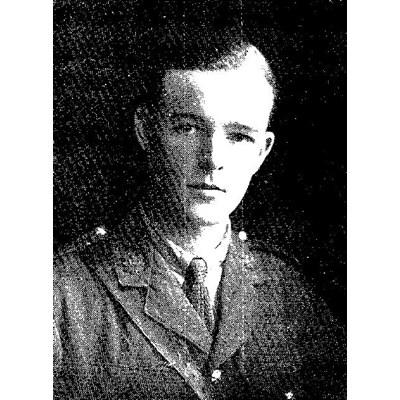Sillars, David Robertson (1897 - 1918)

Captain, 12th Bn. Highland Light Infantry
Buried at Harponville Communal Cemetery
Commemorated at Hillhead High School
Captain David Robertson Sillars was the younger son of the late Mr. David R. Sillars, Helensburgh, and Mrs. Sillars, 10 Rokeby Terrace, Hillhead, Glasgow. Bertson, as he was always called, will long be tenderly remembered by the present pupils for the fine spirit with which he entered into all the activities of School life. Big, powerful, energetic, he was specially keen on sport, and at all times "played the game." His was the happy spirit which sees the sunshine in everything, and there were few situations out of which he could not extract a gleam of humour. His energies were not all absorbed by the physical side of School life. He had good ability, and always took a creditable place in his classes. He early made up his mind for a medical career, and while still at School he joined the R.A.M.C. (Territorials), and in
August, 1914, he was mobilised with the 4th Scottish General Hospital.
Bertson, with his high spirits and eager nature, doubtless chafed at the routine of stretcher drill, and in June, 1915, obtained a transfer to the Cyclist Company of the 65th (Lowland) Division, and rapidly rose to the rank of sergeant. In January, 1917, he was given a commission in the Highland Light Infantry, and proceeded overseas with his regiment in time to take part in the latter stages of the Battle of the Somme.
In the beginning of 1917 he was attached to the Intelligence Staff of the 4th Army. Three months later he rejoined his old battalion as Intelligence Officer. At the first Battle of Arras he was wounded, and invalided home. On being passed fit for general service he rejoined
his old battalion towards the close of 1917. During the great German offensive he saw much heavy fighting, and fell to a sniper's bullet on 4th June, 1918.
Bertson was not only a dashing soldier, but looked the part. His round of service for one so young-he was only twenty-one was extraordinarily varied, and it must indeed have been sterling qualities that gave him in four years promotion through all the grades of non-commissioned rank in the R.A.M.C. and Cyclist Corps to fall at last a full Captain in the Infantry.




